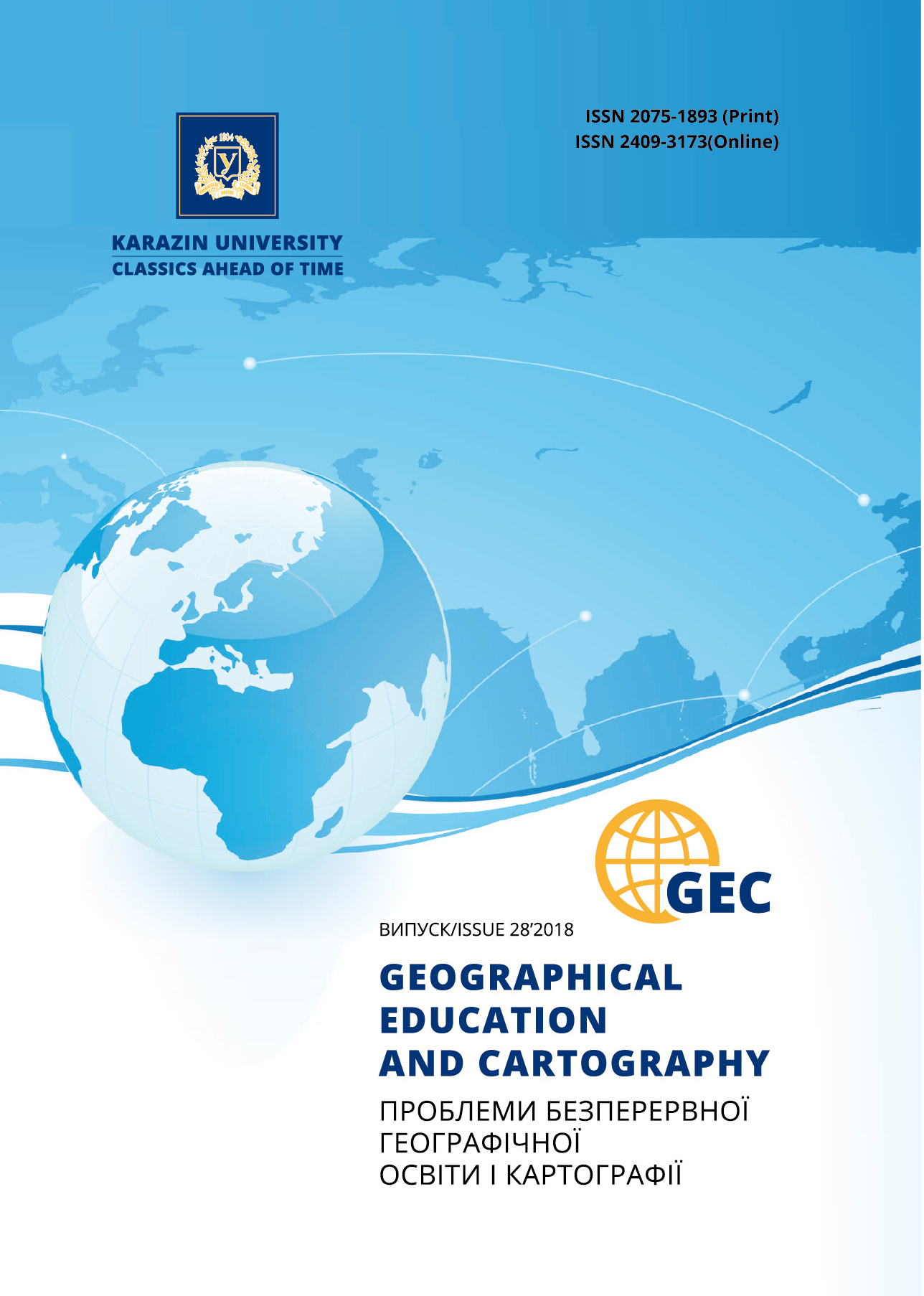Formation of knowledge about international economic relations in school geography
Abstract
Formulation of the problem. International economic relations (IER) is an important link in the process of interaction between states and regions of the modern world. The IER reflect the level of country development, the degree of their internationalization, is an integral part of the world’s improvement. Therefore, the study of IER at school is becoming increasingly necessary. One of the disadvantages of geography training programmes is the lack of a unified system for studying the IER. Acquaintance with them is transferred to the final course of geography. The purpose of the article is to present an improved system of knowledge about international economic relations and methods of their study in school geography. The main part. The article considers the component study of IER relations in existing curricula in geography; the peculiarities of the formation of knowledge about IER in different grades; the proposed system of knowledge about IER in the school geography; described methods of studying IER in geography lessons at school, taking into account the pupils’ age. Among the proposed methods is the use of electronic learning tools for better assimilation of the topic.
The system of IER concepts formation at school is improved. In the 6th grade, we propose to begin to form the concept of international tourism. In the 7th grade, the concept of the main IER forms: trade, tourism, financial relations, scientific and technical cooperation should be formed. In the 8th grade we offer to form the concept of international labour movement and international integration processes. In the 9th grade, the concept of international currency relations is formed and knowledge of all forms of IER is systematized. Conclusions. Analysis of existing programs on geography shows the lack of knowledge about IER, the concept of which is presented only in 9-th grade. It is insufficient for a modern citizen’s preparation. There is an urgent need to expand the IER concepts in school geography. It is proposed to use a variety of methods to form the concepts of IER in 6-9 grades, especially discussions, work with interactive maps, on-line testing, and so on. Active and independent learning is gradually increasing from 6 th to 9-th grade. In the future, it is expected to test the effectiveness of the proposed method in the course of pedagogical experiment in geography lessons at school.
Downloads
References
Amelina, I.V., Popova, T.L., Vlady`my`rov, S.V. (2013). Mizhnarodni ekonomichni vidnosy`ny`: navch. posib. [International economic relations: textbook]. Ky`yiv: Centr uchbovoyi literatury`, 256.
Baranskij, N.N. (1990). Metodika prepodavanija jekonomicheskoj geografii [Economic geography teaching methods]. Moskva: Prosveshhenie, 303.
Kozak, Yu.G., Zayecz`, M.A. (2016). Mizhnarodni ekonomichni vidnosy`ny`: navch. posib. [International economic relations: textbook]. Odesa, TOV Pluton, 352.
Peredrij, O.S. (2008). Mizhnarodni ekonomichni vidnosy`ny`: navch. posib. [International economic relations: textbook]. Ky`yiv: Znannya, 264.
Poljakov, V.V., Shhenin, R.K., ed. (2018). Mezhdunarodnye jekonomicheskie otnoshenija: ucheb. dlja vuzov [International economic relations: textbook for high schools]. Moskva: Jurajt, 180.
Romanchy`kov, V.I., Romanenko, I.O. (2008). Mizhnarodni ekonomichni vidnosy`ny`: navch. posib. [International economic relations: textbook]. Ky`yiv: Centr uchbovoyi literatury`, 256.
The ClassMarker online testing. Available at: https://www.classmarker.com/
Mapping Global Transformations: Harnessing the Forum’s Collective Intelligence. Available at: https://toplink.weforum.org/knowledge/explore
Mobile and web-based study – Quizlet. Available at: https://quizlet.com/258181564/flash-cards/?x=1jqU&i=16ax5r
Copyright (c) 2018 Vera Sprenne, Alexander Zhemerov

This work is licensed under a Creative Commons Attribution 4.0 International License.





